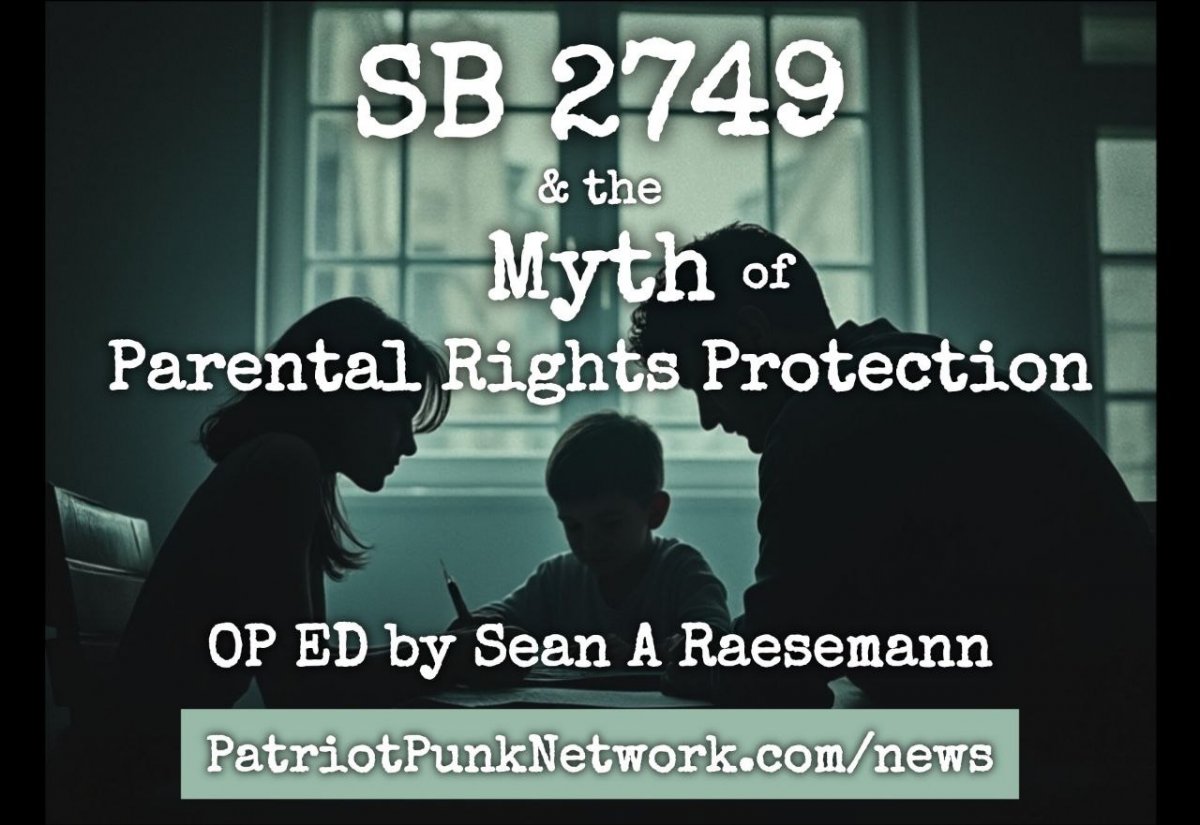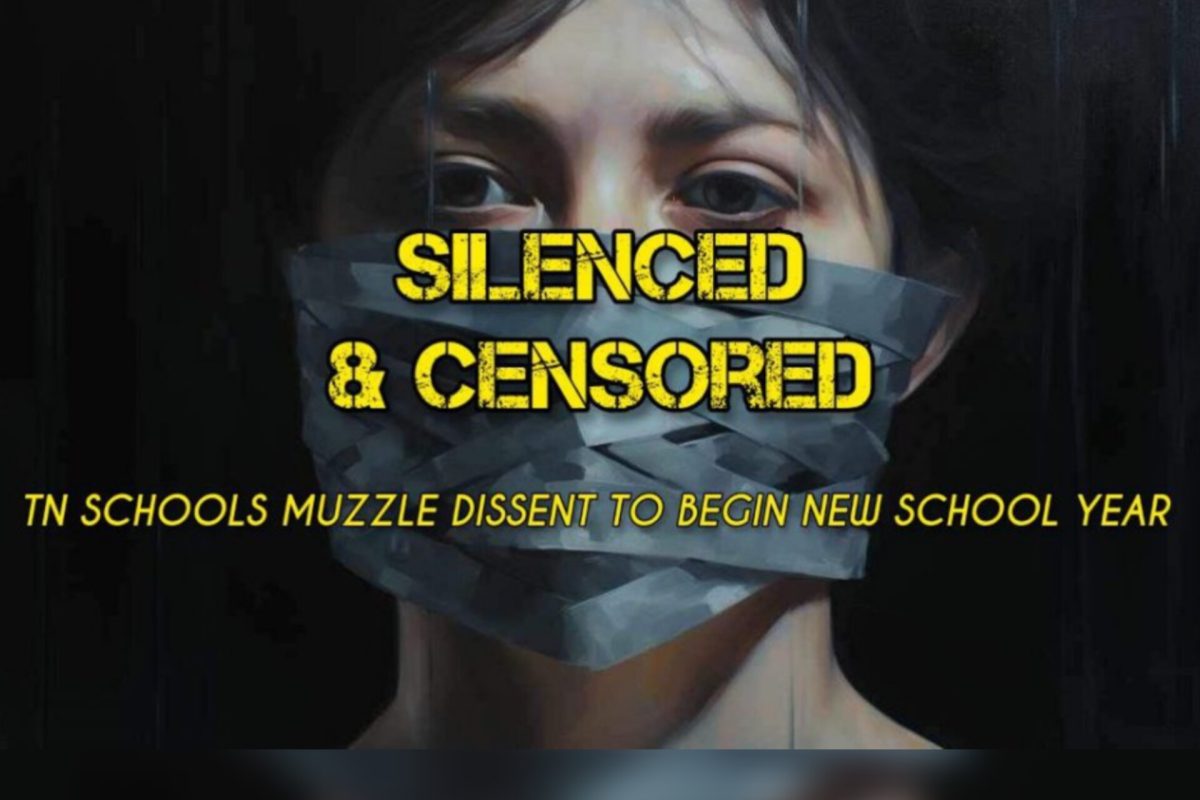Op-Ed
SEAN A RAESEMANN – OCTOBER 2, 2024
In May 2024, Governor Lee signed Senate Bill 2749, the so-called “Parental Rights” bill, into law.
At first glance, this legislation appears to align with conservative ideals of protecting parental rights. However, a closer examination reveals that it opens the door to greater government oversight and control.
Given that core conservative principles emphasize limited government and individual liberty, it is perplexing that so many self-proclaimed conservatives support this bill. Perhaps the dissonance stems from a shallow understanding of conservatism and a failure to grasp the bill’s deeper implications.
At the heart of true conservatism lies a belief in limited government—a government that refrains from meddling in the private lives of citizens, particularly in matters of family, education, and healthcare. Conservatives traditionally champion the principle that individuals, not the government, should make decisions concerning their families. Yet SB 2749, by codifying parental rights, invites governmental oversight into what should remain private. Rather than protecting families, the bill expands the government’s reach by legislating the definition and enforcement of parental rights.
For example, Section 36-8-103(c) codifies a set of parental rights, such as the right to direct the upbringing, moral and religious training, and healthcare of a child.By explicitly defining these rights, the government takes on the role of determining their scope and application. This codification inherently invites government interpretation and enforcement, extending government authority into family decisions. When the state defines rights that should be inherent, it also gains the power to restrict or regulate those rights, a shift that is antithetical to conservative philosophy.


Moreover, Section 36-8-103(f) establishes a mechanism allowing parents to sue government entities or others for infringing these codified rights. While this may seem protective of parental rights, it increases government oversight by empowering courts to adjudicate the limits of these rights. This shifts control from the family to the judicial system—another arm of government. What starts as a promise of protection inevitably evolves into more layers of bureaucracy thereby creating a reality far removed from the conservative call for small government.
James Madison warned of this type of governmental overreach. In Federalist No. 51, Madison wrote: “In framing a government which is to be administered by men over men, the great difficulty lies in this: You must first enable the government to control the governed; and in the next place oblige it to control itself.” SB 2749 expands the government’s role beyond merely protecting rights; it enables the state to define and regulate them, demanding more bureaucracy and expanding government authority.

Madison’s vision of checks on power is undermined when laws like this invite state intervention into private affairs. When government expands, individual liberties contract. By expanding government authority, the bill permits the state to override parental rights when it demonstrates a “compelling governmental interest” (Section 36-8-103(b)). This provision arms the state with broad authority to intervene whenever it deems necessary, setting a dangerous precedent.
The concept of “compelling interest” remains broad and subjective offering the government a tool to erode parental autonomy under the guise of necessity. This slippery slope hands future political powers the ability to redefine or curtail the very rights the bill purports to protect.
Moreover, the bill introduces avenues for litigation and governmental oversight, allowing parents to sue government entities or healthcare providers. While this provision masquerades as a protective measure, it invites the courts into the most intimate aspects of regular family life. This litigation mechanism, as detailed in Section 36-8-103(f), opens the door for increased judicial involvement in private family decisions, a far cry from the conservative goal of minimizing government interference.
Perhaps the most dangerous aspect of this bill is that it codifies rights through government legislation. This bill’s supporters fail to realize that political parties essentially control government. Should the government fall under the control of a political party that does not support parental rights, the bill can be amended, rescinded, or adjusted in ways that do not align with the values of today’s supporters. In short, what the government gives, it can also take away.
When rights are left in the hands of legislators, they are subject to the shifting winds of political power. Today’s protections could easily become tomorrow’s restrictions, depending on who holds office. By entrusting parental rights to government codification, supporters of SB 2749 unwittingly subject parental authority to political whims. If a future political regime deems certain parental decisions as contrary to the public interest, these rights can now be redefined, restricted, or even removed.

The truth is clear: SB 2749 does not safeguard parents against government overreach. Instead, the law enables and expands government. The legislation creates a legal framework that allows the state to regulate and reinterpret parental rights under the guise of protection. Conservatives supporting this bill fail to see the profound irony. Their superficial understanding of conservatism blinds them to the fact that once the government codifies rights, it also gains the power to regulate, restrict, redefine, and even rescind them.
By endorsing SB 2749, conservatives surrender greater control to the state. SB 2749 doesn’t protect parental rights—it gives the government a foothold to intervene in family life whenever it deems necessary. In doing so, the law opens the door to future governmental intrusions that could further erode parental authority in ways these “conservatives” have not anticipated.
True conservatism demands vigilance in protecting liberty and limiting government. Those who support SB 2749 betray that core principle and reveal a profound misunderstanding of the very ideology they claim to uphold. It is time they awaken to the realization that the bill’s sponsors deceived them by successfully disguising government overreach as protecting family values.



























